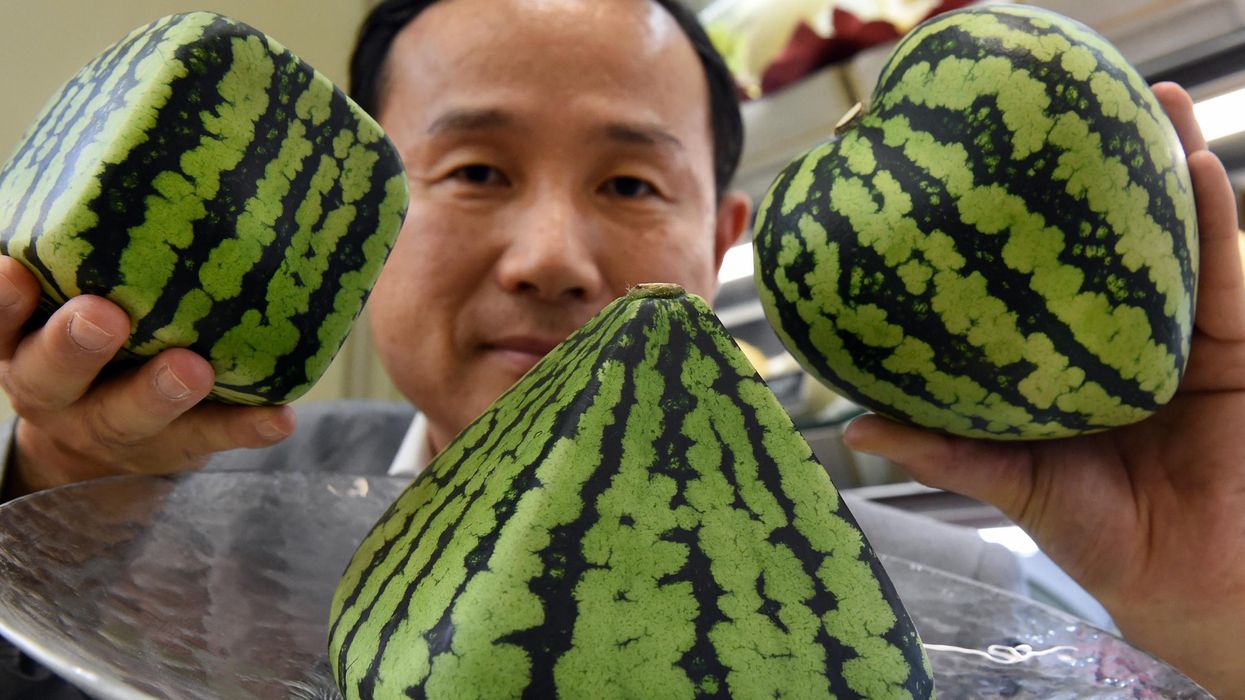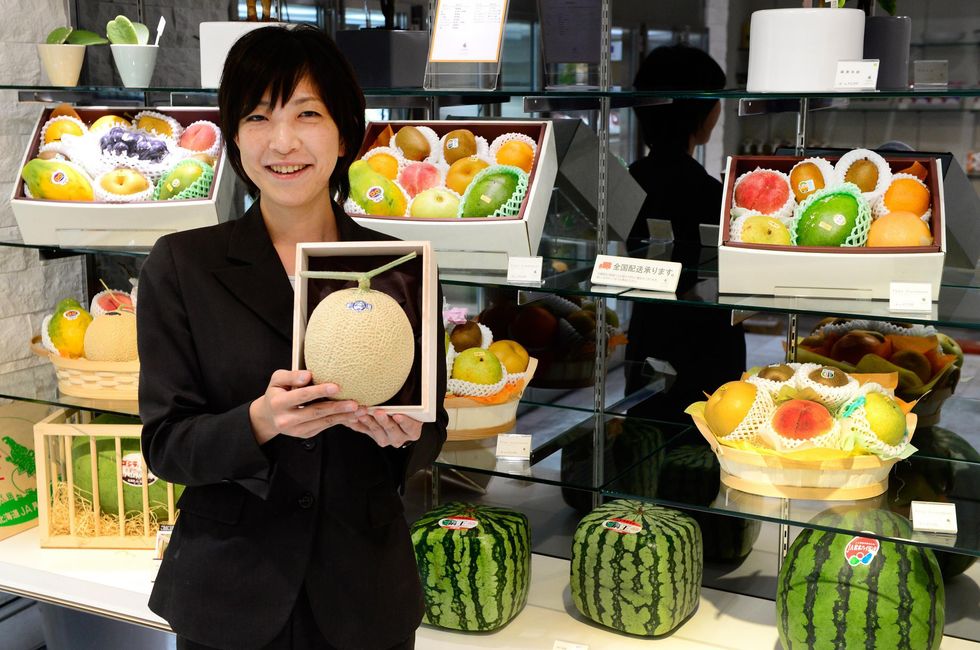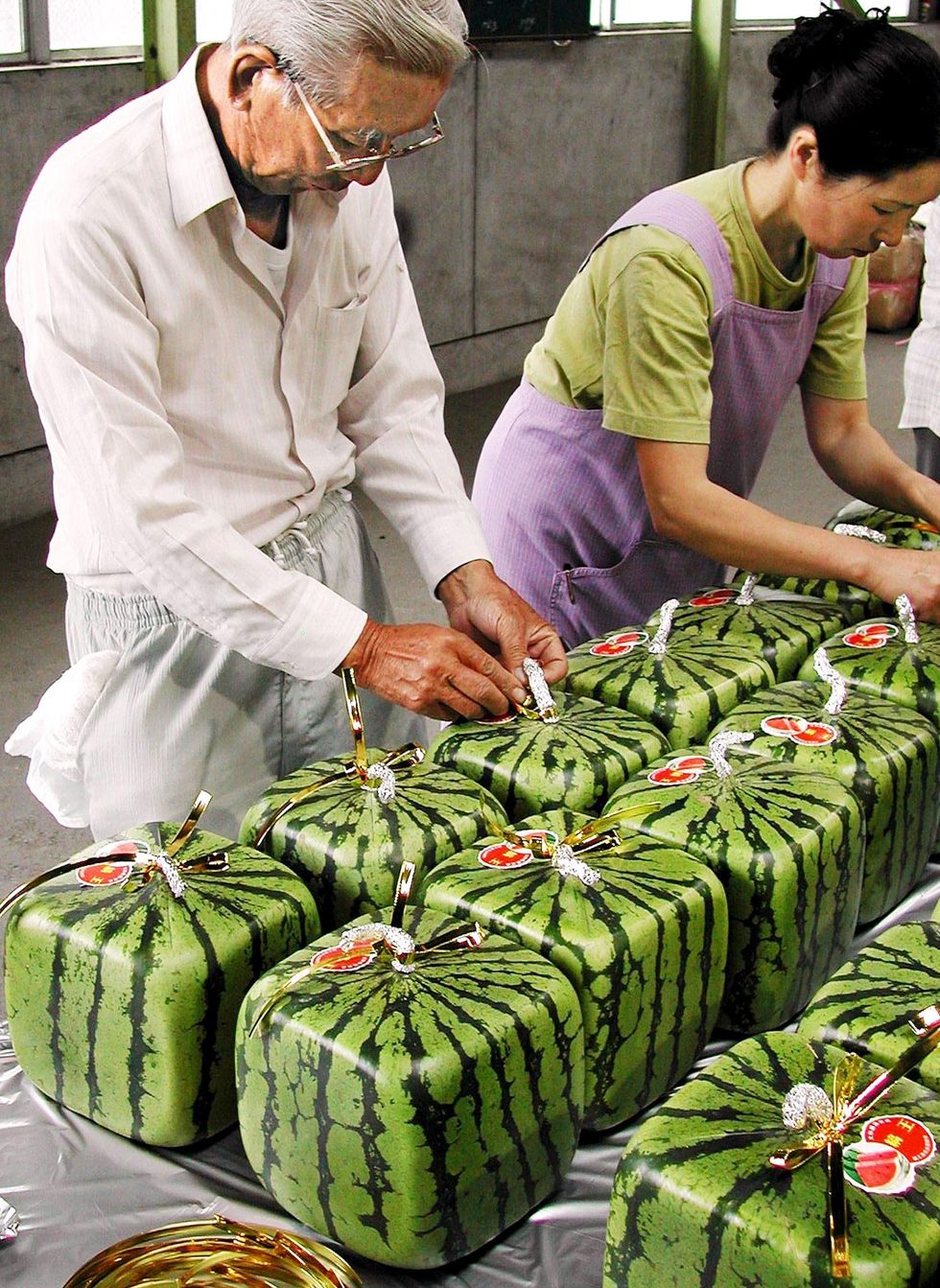Louis Dor
Mar 26, 2017

Picture:
TORU YAMANAKA/AFP/Getty Images
In 2016, a premium Hokkaido cantaloupe sold for 3 million yen, (roughly £21,500).
The Yubari melons, which were carefully cultivated, are the epitome of a growing trend in the country - luxury fruit.
These range from strawberries the size of tennis balls, to ruby roman grapes to geometric melons.

Soyeon Shim, dean of the School of Human Ecology at the University of Wisconsin-Madison, told CNN:
Fruits are treated differently in Asian culture and in Japanese society especially.
Fruit purchase and consumption are tied to social and cultural practices.
It is not only an important part of their diet, but, perhaps more importantly, fruit is considered a luxury item and plays an important and elaborate ritual part in Japan's extensive gift-giving practices.
Not only are they prized in person-to-person giftgiving, but also in offering to gods in home altars and buddhist steps.

The fruit also tastes far sweeter, which makes it a delicacy and a status symbol.
HT CNN
More: A gynaecologist actually has to tell people not to keep fruit in their vagina
Top 100
The Conversation (0)













